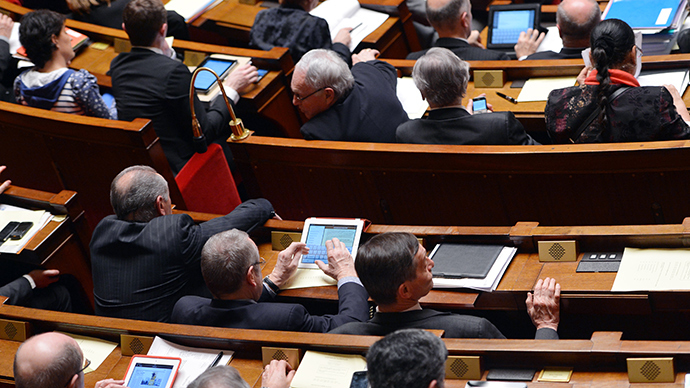The French government has published a decree enacting an internet surveillance law that was passed a year ago. The controversial measure, allowing authorities 'administrative access to connection data,' reportedly comes into force the first day of 2015.
The decree, providing French officials with access to data from a wide range of telecom services in the country - including phone calls, text messages and internet access by both private users and operators - was published over the Christmas holidays, France's Le Point reported.
READ MORE: ‘Personal data exposé’: Outcry in France against new i-snooping law
The legislation was passed in December last year, and was a surprise to many: less than two months before it was approved, the country's president François Hollande - during a phone conversation with Barack Obama - expressed his "deep disapproval" at revelations that the NSA had been intercepting millions of phone calls in France, having described it as an "unacceptable practice."
READ MORE: French telecom operator Orange threatens to sue NSA over cable tapping
Starting from January 1, French government itself will be in control of its residents' connection data, with an "interdepartmental group" being in charge of security interceptions and administrative access, gathering requests for certain data and obtaining it from operators.
Departments, authorized to issue data requests, include several branches within the Interior Ministry, the Ministry of Defense and a directorate at the Ministry of Finance. Laws, empowering state officials to monitor the population by means of communication and information access, have been passed under the flag of protection from terrorist threat, the French media wrote.
READ MORE: Global internet freedoms in decline – monitoring group
Powers, granted to the government by the new surveillance law, have been met with protests in France. Before it was eventually enacted, authorities have set up an oversight body - National Control Commission for Security Interceptions (CNCIS), which should supervise governmental data control powers. Although it is allowed to oversee documents and information asked to be disclosed to the authorities, it has no power to sanction anyone, or alert of a reported abuse, Le Point wrote.

